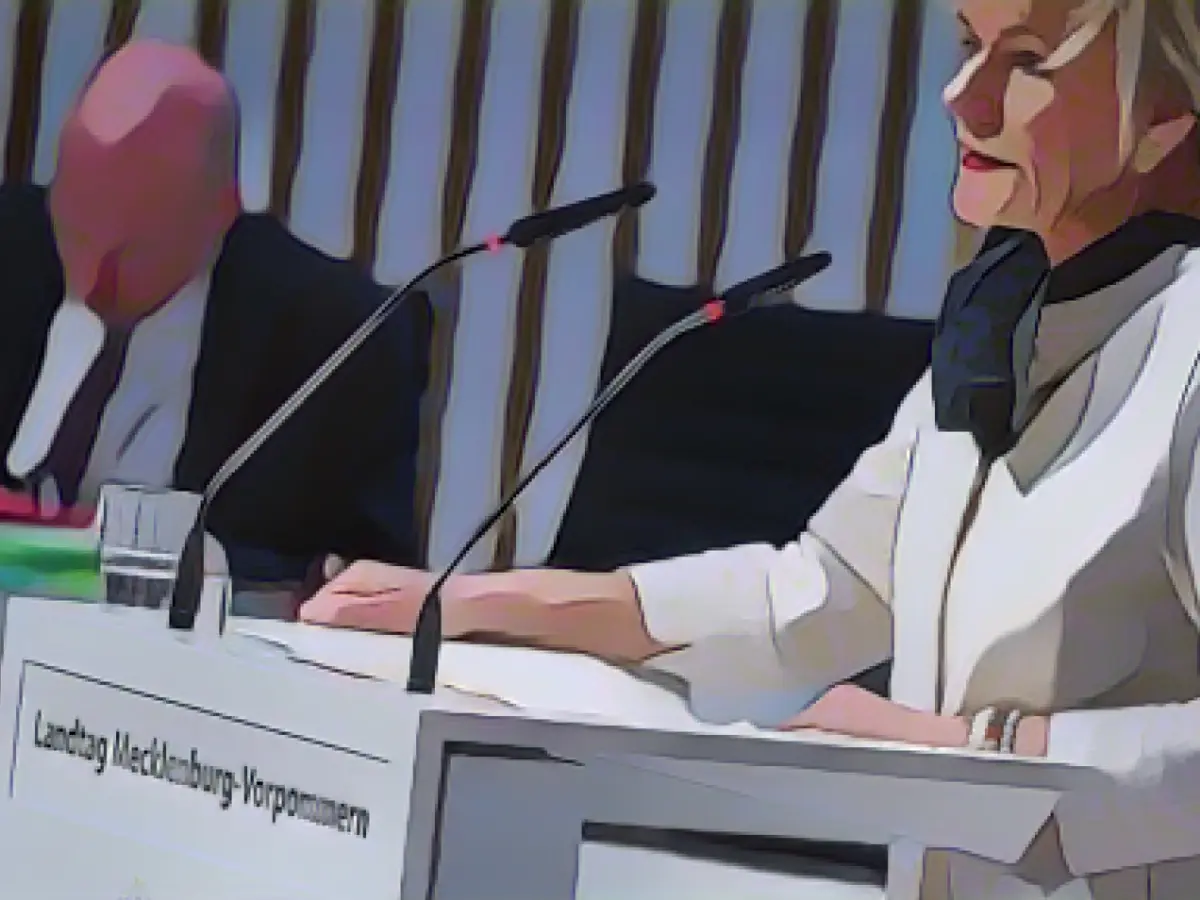Prime Minister Dreyer Assures Rhineland-Palatinate's Business Projects Despite Budget Cuts
The Mini-Prime Minister of Rhineland-Palatinate, Malu Dreyer (SPD), isn't fretting over vital and government-funded projects in the state despite the federal government's tightening of the financial purse strings. Dreyer shared her sentiments with the German Press Agency in Mainz, stating, "It's comforting to hear the federal government has made it crystal clear that businesses undergoing transformation should continue to receive the aid they've been talking about extensively." She further added, "This stands true for our state as well."
Dreyer touched upon several notable projects, including the transformation at Daimler Truck in Wörth, the planned battery cell factory in Kaiserslautern, and BASF's funded electrolyzer development in Ludwigshafen. These projects involve breaking down water into hydrogen and oxygen. Dreyer's optimism stems from hearing reassurances from the federal government, asserting they are dedicated to securing these significant economic ventures.
News of the Federal Constitutional Court nullifying the reallocation of 60 billion euros from the 2021 budget to the Climate and Transformation Fund stirred controversy. The CDU/CSU parliamentary group filed a lawsuit concerning the matter. Following weeks of contention, the coalition of SPD, Greens, and FDP in the federal government reached an agreement on imposing cuts and savings across the board.
Dreyer remains uncertain of any indirect consequences on Rhineland-Palatinate as a result of the federal government's budget adjustments. The partnership between the federal and state governments could see joint initiatives facing impact. Dreyer shares, "At present, we simply can't get a clear picture of the situation." However, she is grateful "that, due to the solid budget management of our finance minister, we're not grappling with the same troubles as some other federal states."
Additional Insights:
The Federal Government's budget adjustments present diverse implications for the funded business projects in Rhineland-Palatinate. Here's a rundown of these impacts:
- Limited funding for infrastructure and research: Despite Rhineland-Palatinate's focus on education, research, climate action, and digitalization, infrastructure development, and health, the overall budget may see reductions in specific sectors, affecting various projects.
- Increased loan repayments and interest: EUR 100 million will be attributed to debt repayment annually as part of the PEK-RP program. This allocation could lead to reallocating funds from other projects, potentially impacting new business initiatives.
- Enhanced municipal liquidity: A staggering EUR 8.5 billion will be set aside for municipalities in 2025, increasing to EUR 8.6 billion in 2026. This boost will support local projects, but it also means significant expense allocation will be devoted to municipal support, potentially constraining the scope for other funded projects.
- Economic challenges and fiscal policy modifications: The budget acknowledges Rhineland-Palatinate's economic hurdles and the necessity of fiscal changes. While Dreyer maintains confidence that the budget can weather future challenges, budgetary cuts and savings may still impact the overall funding environment for business projects, potentially leading to delays or lesser allocations.
- Prioritization of education and internal security: The budget allocates an unprecedented EUR 42 billion to education, representing a nearly 11% rise since 2023. EUR 4.2 billion is also dedicated to the police force for crisis management and internal security. These emphases may shift the budget allocation focus, potentially reducing resources available for other projects.
In conclusion, while Dreyer's optimism is encouraging, the full impact of the federal government's budget adjustments upon Rhineland-Palatinate's funded ventures remains contingent upon the intricate allocation of funds and priorities set by the state government.






